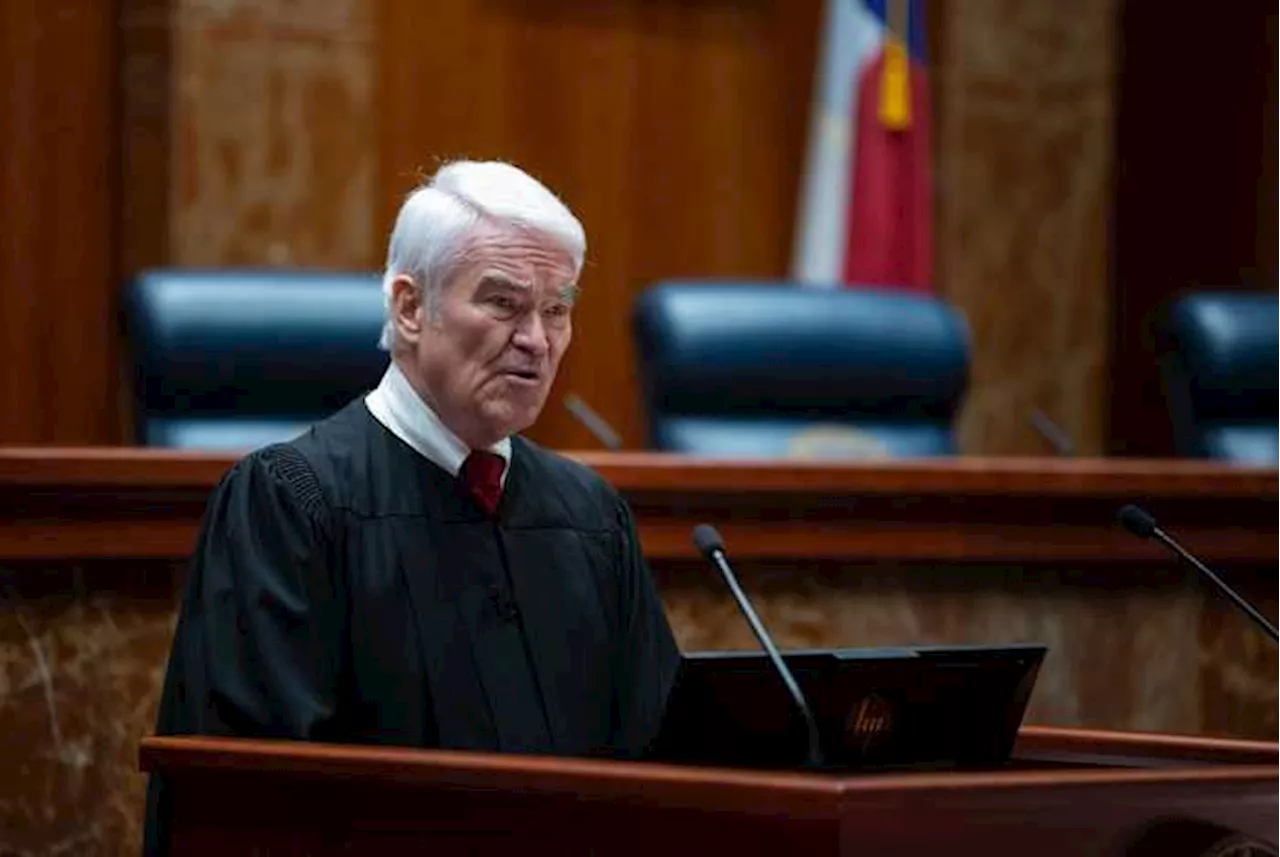Over 35 years, Hecht modernized the court, increased access to justice for the poor and saw his conservative views come to dominate the bench.
Read full article: Five families displaced after apartment fire in Live Oak, officials sayRead full article: New Texas laws going into effect on Jan. 1, 2025Set a resolution with our New Year’s sale on Babbel language learningRead full article: Set a resolution with our New Year’s sale on Babbel language learning
“This is always a really busy time for us, because the opinions are mounting up to be talked about,” he said. “It’ll be busy next week.” In his typical understated manner, so at odds with the bombast of the other branches of government, Hecht told The Texas Tribune that serving on the court has been the honor of his life.
From left, pictured are Texas Supreme Court Justices Craig Enoch, John Cornyn, Nathan Hecht, Raul Gonzalez, Tom Philips and Jack Hightower in the Texas House chamber in 1993.Hecht was appointed to the district court in 1981 and quickly made a name for himself, pushing the court to modernize their stenography practices and taking the unusual step of writing opinions as a trial judge. He was elected to the court of appeals in 1986, and ran for Texas Supreme Court two years later.
“Party politics were changing in the state at the same time, but the broader issue on our court at the time was to ensure that judges were following the law,” Hecht said. “That was a driving issue.” The only other justice who regularly staked out such a conservative position, according to the New York Times, was Priscilla Owen, who President George W. Bush appointed to the 5th U.S. Circuit Court of Appeals in 2005. Hecht and Owen, who now goes by her maiden name, Richmond,
This advocacy work raised ethical questions that Hecht fought for years, starting with a reprimand from the State Commission on Judicial Conduct. Hecht got that overturned. The Texas Ethics Commission then fined him $29,000 for not reporting the discount he got on the legal fees he paid challenging the reprimand. He appealed that fine and the
“There's no Republican side to an oil and gas case. There's no Democrat side to a custody hearing,” he said. “That's the bread and butter of what we do, and that's not partisan.”Unlike its federal counterpart, the Texas Supreme Court is often a temporary port of call on a judge’s journey. Many, like Abbott, Sen., leave for higher office. Others, like Owen and 5th Circuit Judge Don Willett, leave for higher courts. Most, like Phillips, leave for higher pay in private practice.
Hecht ushered in an era of modernization, both to the technology and the rules that govern justice in Texas. He led a push to simplify the appellate rules, removing many of the trapdoors and procedural quirks that led to important cases being decided on technicalities. The court scaled back how long cases could drag on by limiting discovery, including how long a deposition can go. And he ensured every case was decided before the term ended, like the U.S. Supreme Court.
“Some people call it the justice gap. I call it the justice chasm,” Hecht said. “Because it’s just a huge gulf between the people that need legal help and the ability to provide it.”
Politics State Government Nathan L. Hecht Texas Supreme Court Courts Texas Legislature
United States Latest News, United States Headlines
Similar News:You can also read news stories similar to this one that we have collected from other news sources.
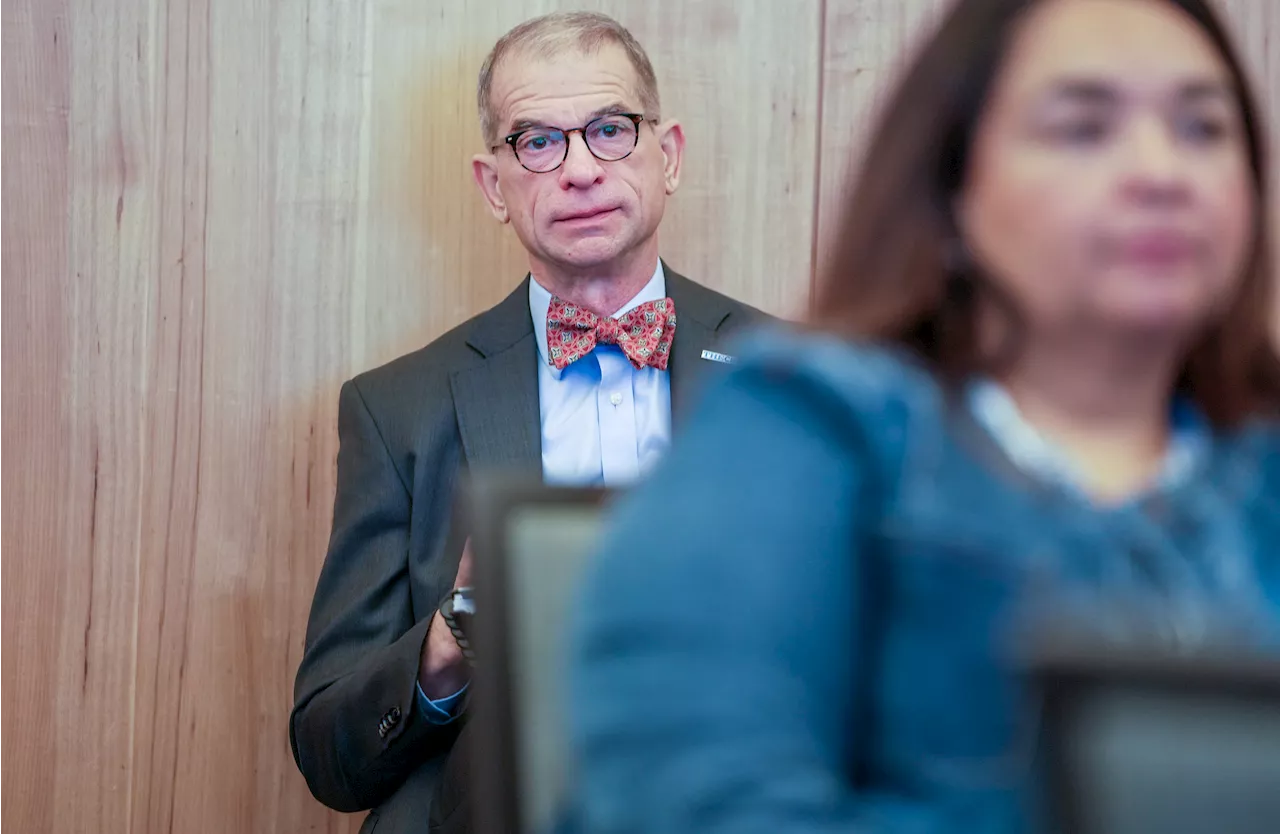 Expanding college financial aid will help Texas meet workforce needs, new higher ed chief saysTexas' new high ed chief, Wynn Rosser, thinks Texas could benefit from expanding college financial aid.
Expanding college financial aid will help Texas meet workforce needs, new higher ed chief saysTexas' new high ed chief, Wynn Rosser, thinks Texas could benefit from expanding college financial aid.
Read more »
 As Texas Chief Justice Nathan Hecht prepares to retire, he reflects on the Supreme Court he helped changeOver 35 years, Hecht modernized the court, increased access to justice for the poor and saw his conservative views come to dominate the bench.
As Texas Chief Justice Nathan Hecht prepares to retire, he reflects on the Supreme Court he helped changeOver 35 years, Hecht modernized the court, increased access to justice for the poor and saw his conservative views come to dominate the bench.
Read more »
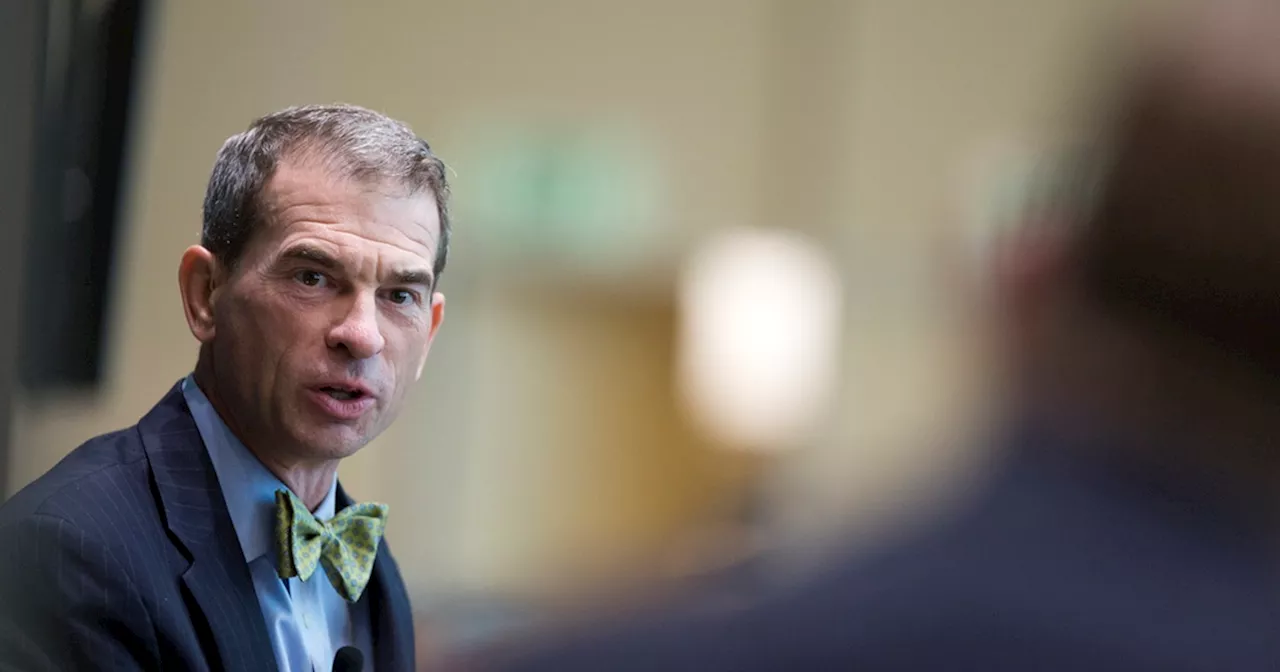 Financial aid is priority for Texas’ new higher ed chiefIn his new role, Rosser will be responsible for helping Texas meet its goal to increase the number of Texans ages 25 to 34 with a postsecondary credential to 60%by 2030.
Financial aid is priority for Texas’ new higher ed chiefIn his new role, Rosser will be responsible for helping Texas meet its goal to increase the number of Texans ages 25 to 34 with a postsecondary credential to 60%by 2030.
Read more »
 Texas Judge Rejects Motion to Dismiss Charges Against Former Uvalde Police ChiefThe judge ruled that the former chief, Pete Arredondo, can face trial for his handling of the Robb Elementary School shooting, where 19 children and two teachers were killed.
Texas Judge Rejects Motion to Dismiss Charges Against Former Uvalde Police ChiefThe judge ruled that the former chief, Pete Arredondo, can face trial for his handling of the Robb Elementary School shooting, where 19 children and two teachers were killed.
Read more »
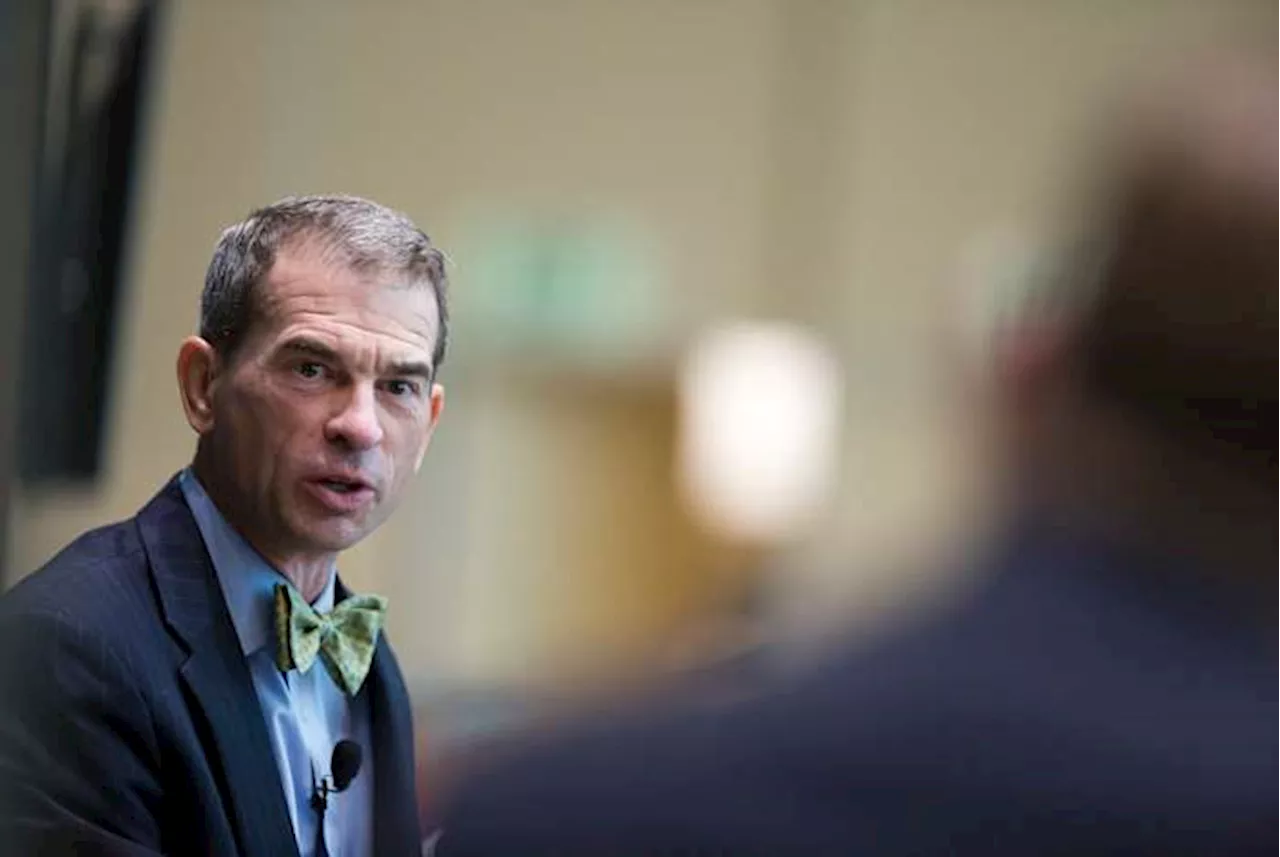 Expanding college financial aid will help Texas meet workforce needs, new higher ed chief saysIn his new role, Rosser will be responsible for helping Texas meet its goal to increase the number of Texans ages 25 to 34 with a postsecondary credential to 60%by 2030.
Expanding college financial aid will help Texas meet workforce needs, new higher ed chief saysIn his new role, Rosser will be responsible for helping Texas meet its goal to increase the number of Texans ages 25 to 34 with a postsecondary credential to 60%by 2030.
Read more »
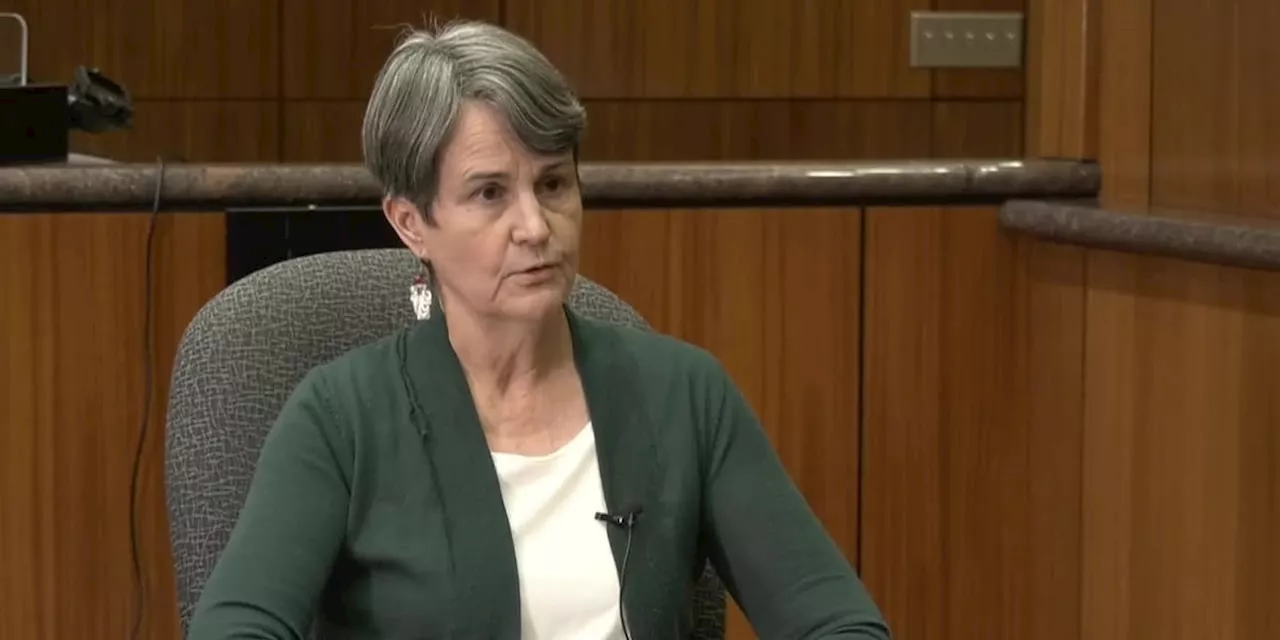 In Depth: Full interview with incoming Alaska Chief Justice Sue CarneySue Carney is set to become Alaska's next Chief Justice with the impending retirement of current Chief Justice Peter Maassen. Alaska's News Source reporter Adrian Peterson sat down with Carney to discuss her new role, how her past has shaped her for this moment, and her thoughts on the first female majority on Alaska's Supreme Court.
In Depth: Full interview with incoming Alaska Chief Justice Sue CarneySue Carney is set to become Alaska's next Chief Justice with the impending retirement of current Chief Justice Peter Maassen. Alaska's News Source reporter Adrian Peterson sat down with Carney to discuss her new role, how her past has shaped her for this moment, and her thoughts on the first female majority on Alaska's Supreme Court.
Read more »
